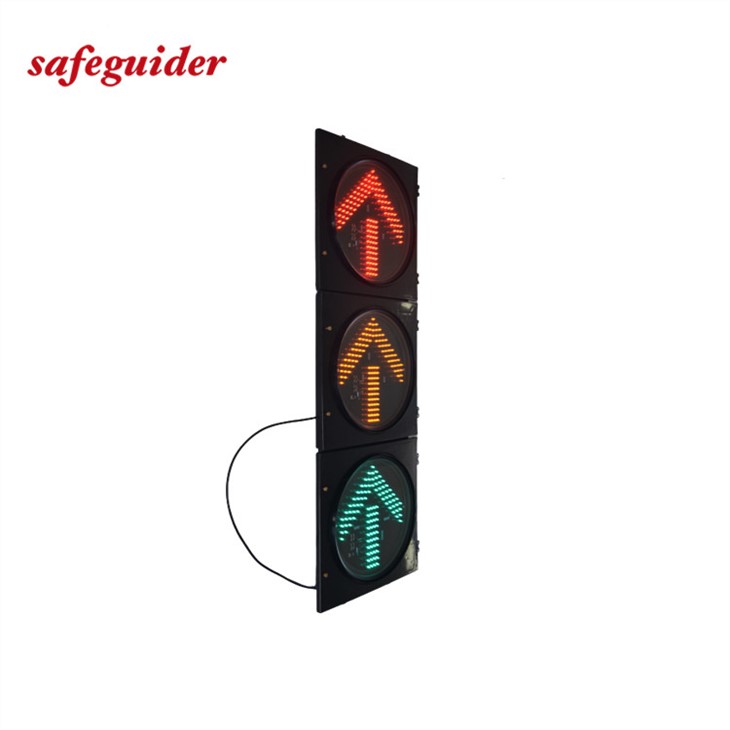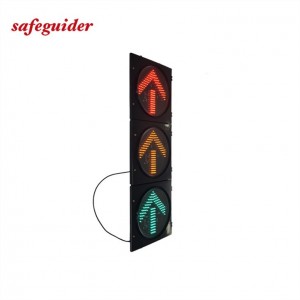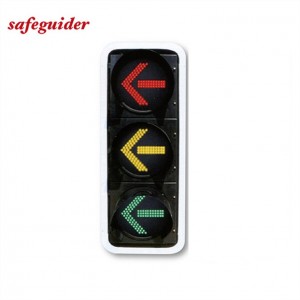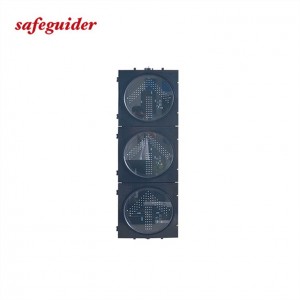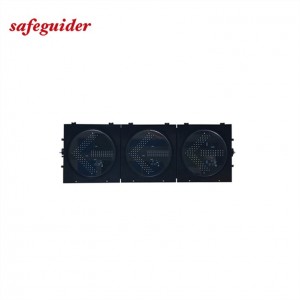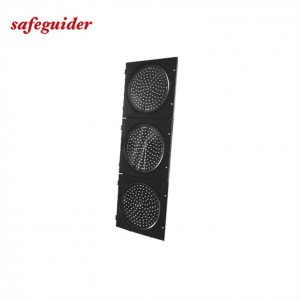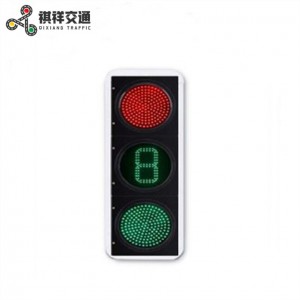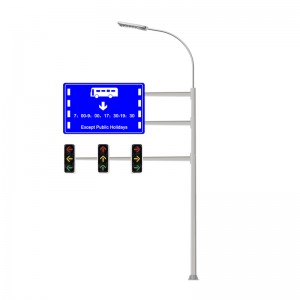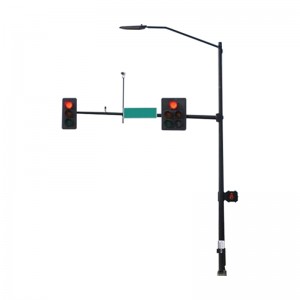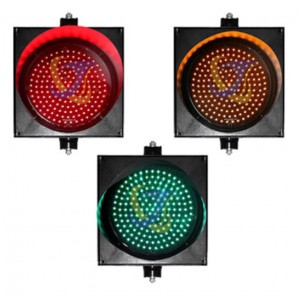Arrow Traffic Signal Light 300mm
Specialized signals known as arrow traffic lights are used to steer traffic in particular directions. Clearly defining the right-of-way for cars turning left, straight, and right is their main duty.
Usually pointing in the same direction as the lane, they are made up of red, yellow, and green arrows. When the yellow arrow is lit, vehicles that have already crossed the stop line may continue, while those that have not must stop and wait; when the red arrow is lit, vehicles in that direction must stop and not cross the line; and when the green arrow is lit, vehicles in that direction may proceed.
When compared to circular traffic lights, arrow lights successfully prevent traffic conflicts at intersections and offer more accurate indication. They are an essential component of urban road traffic signal systems and are commonly used to improve traffic order and safety in reversible lanes and complex intersections.
Specialized signals known as arrow traffic lights are used to steer traffic in particular directions. Clearly defining the right-of-way for cars turning left, straight, and right is their main duty.
Usually pointing in the same direction as the lane, they are made up of red, yellow, and green arrows. When the yellow arrow is lit, vehicles that have already crossed the stop line may continue, while those that have not must stop and wait; when the red arrow is lit, vehicles in that direction must stop and not cross the line; and when the green arrow is lit, vehicles in that direction may proceed.
When compared to circular traffic lights, arrow lights successfully prevent traffic conflicts at intersections and offer more accurate indication. They are an essential component of urban road traffic signal systems and are commonly used to improve traffic order and safety in reversible lanes and complex intersections.
On urban roads, the medium-sized 300mm arrow traffic signal light is frequently utilized. Its main benefits are practicality, flexibility, and visibility, which make it appropriate for the majority of intersection situations.
Equilibrium Clarity and Viewing Distance
Even in bright daylight, the 300mm light panel's moderate size and the arrow symbol's appropriate placement within the panel guarantee easy identification. For normal driving distances on urban main and secondary roads, its luminous surface brightness is appropriate. From a distance of 50 to 100 meters, drivers can clearly see the color of the light and the direction of the arrow, preventing them from making mistakes due to tiny symbols. Nighttime illumination ensures balanced viewability and comfortable driving because it is both highly penetrating and not overpowering to approaching cars.
Broad Compatibility with Installation
Because of its moderate weight, this 300mm arrow traffic signal light doesn't need any extra pole reinforcement. It is inexpensive and easy to install, and it can be mounted directly on integrated signal machines, cantilever brackets, or traditional intersection signal poles. It is suitable for both two-way main roads with four to six lanes and can also meet the installation requirements of narrow intersections such as residential entrances and exits and branch roads. It eliminates the need to adjust signal light size based on intersection size, offering high versatility and reducing the complexity of municipal procurement and maintenance.
Optimized Energy Consumption and Maintenance Costs
300mm arrow traffic signal lights typically use LED light sources, consuming only one-third to one-half the power of traditional signal lights, significantly reducing energy consumption over time. Compared to smaller signal lights, they have a much longer service life of five to eight years thanks to their compact design and superior heat dissipation. Additionally, their highly compatible accessories make it simple to replace damaged parts like the power supply and light panel, which results in a long maintenance cycle and low costs, lowering the operational costs of municipal traffic infrastructure.
Additionally, the 300mm arrow traffic signal's symbol is moderately sized, neither too big to take up too much pole space nor too small to make it difficult for pedestrians or non-motorized vehicles to recognize it. It is an affordable solution that satisfies the requirements of both motorized and non-motorized vehicles. It is frequently utilized at different urban intersections, successfully enhancing safety and traffic order.

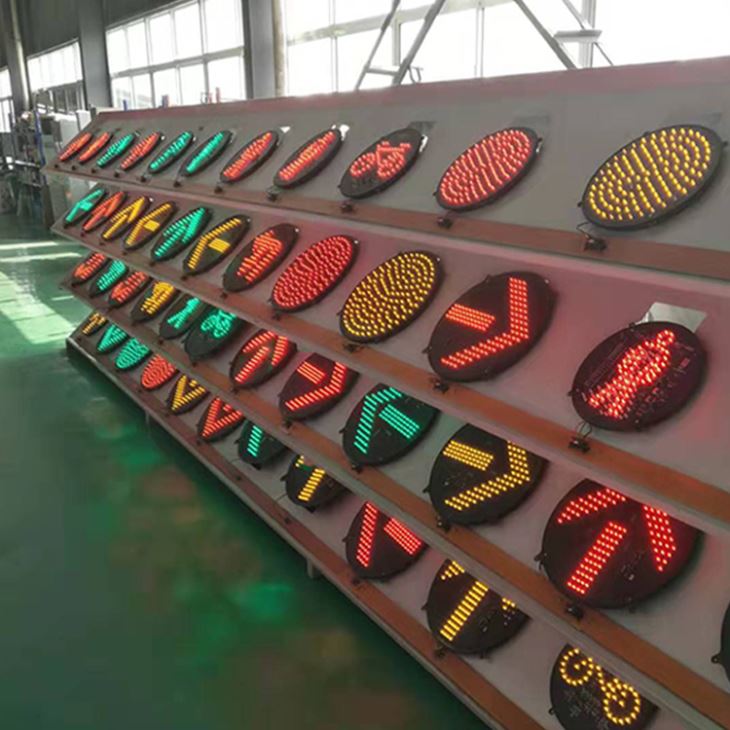
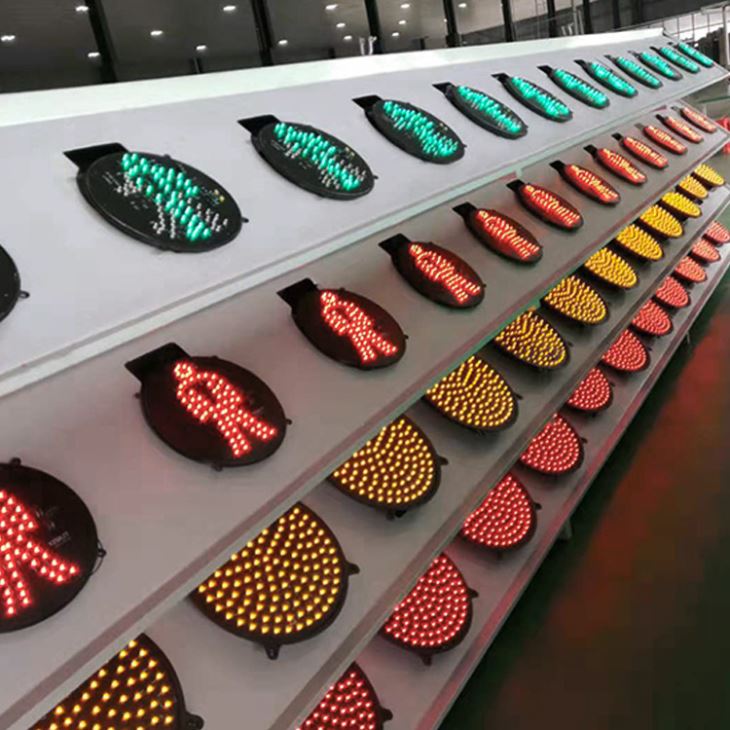
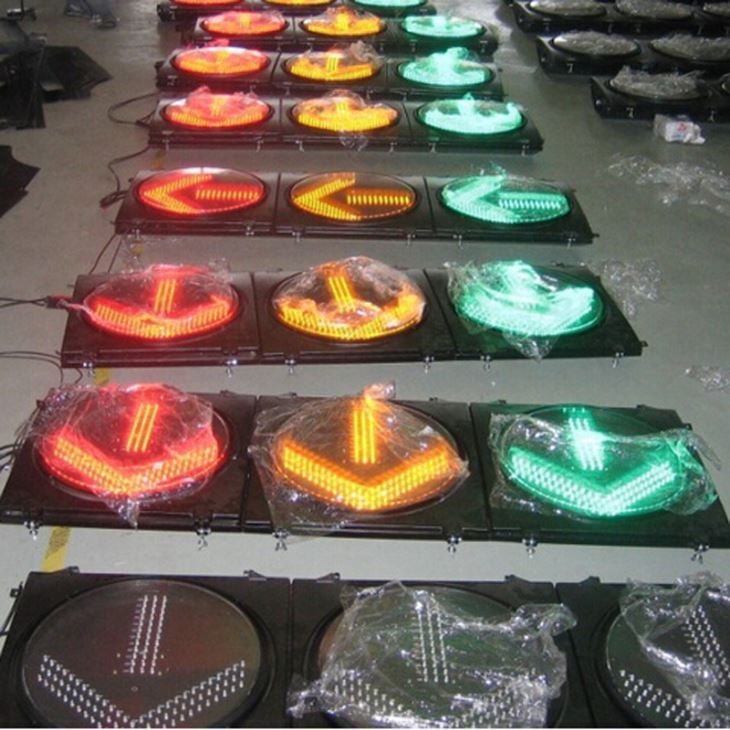
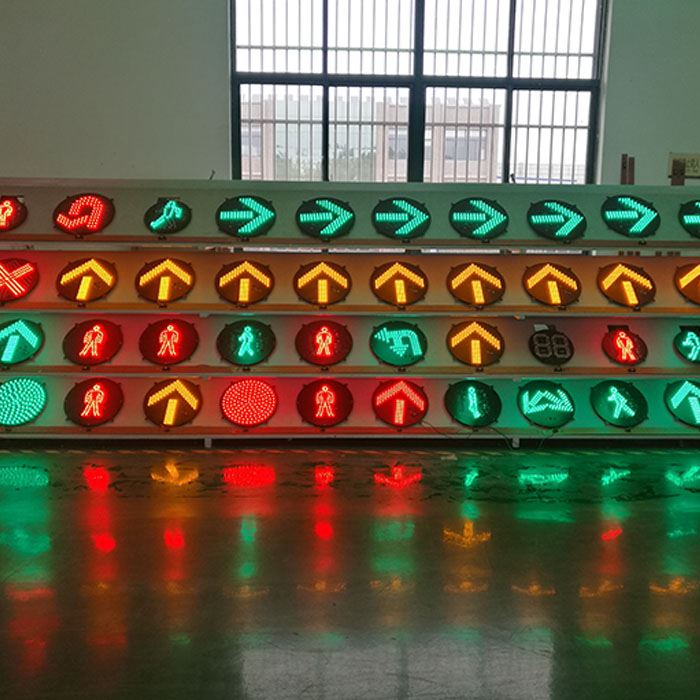
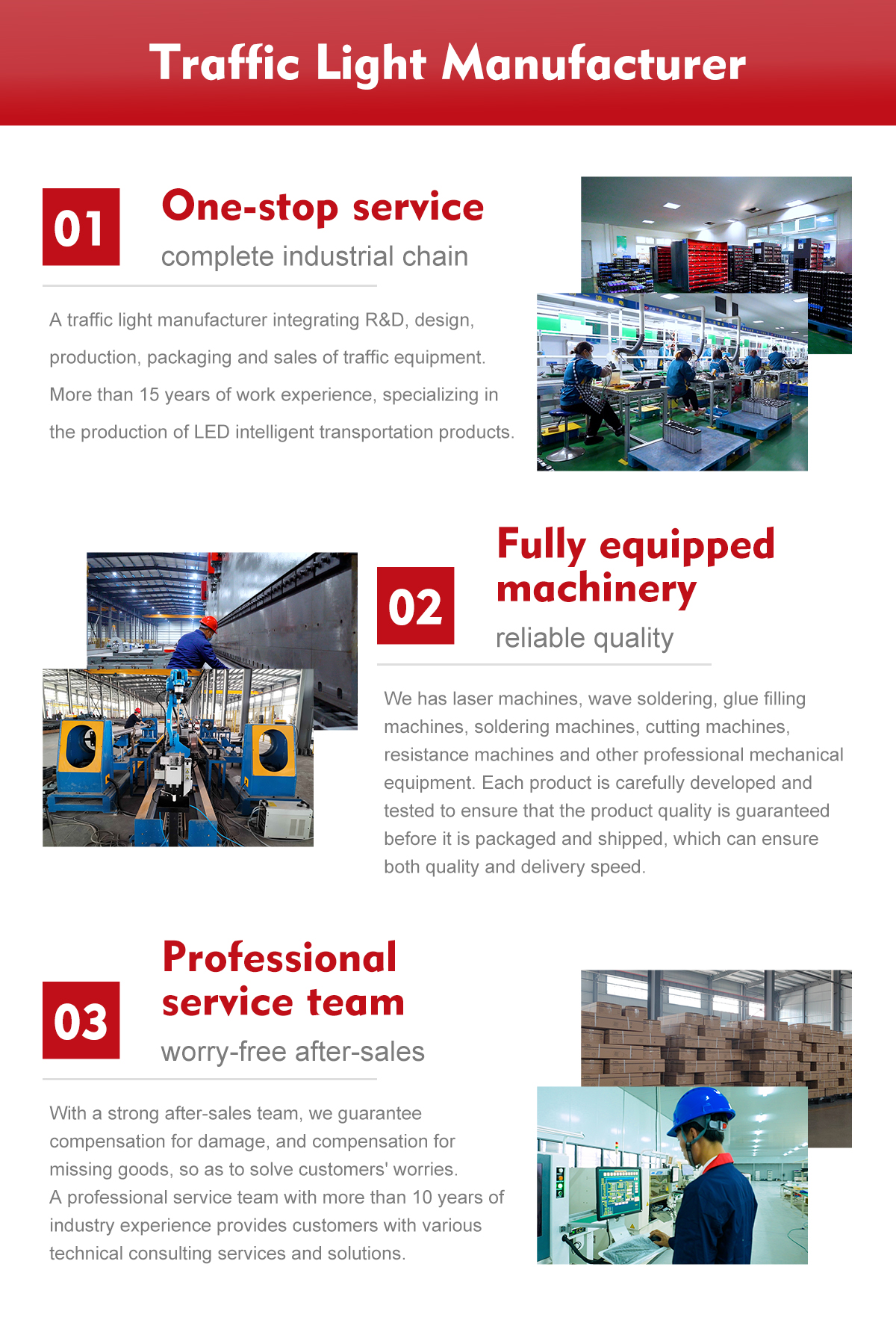
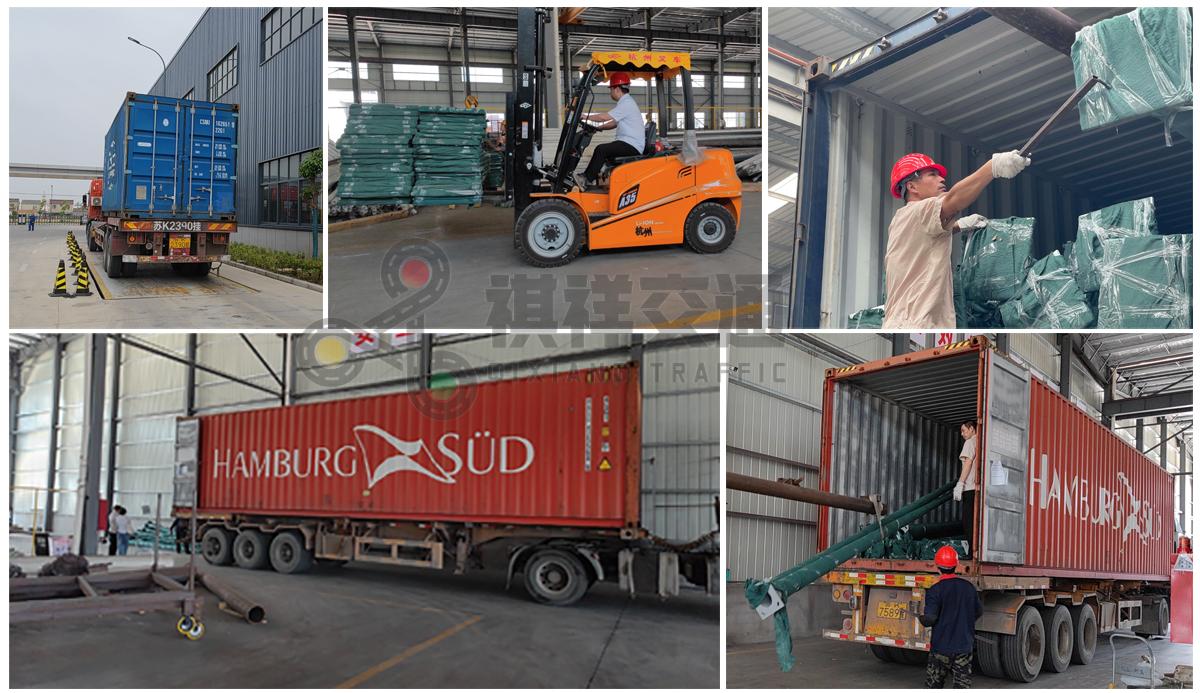
1. Q: What is the visibility distance of a 300mm arrow traffic signal lights?
A: In bright sunlight, drivers can clearly identify the light color and arrow direction from 50-100 meters away; at night or in rainy weather, the visibility distance can reach 80-120 meters, meeting the needs of predicting traffic at regular intersections.
2. Q: What is the typical lifespan of the light, and is maintenance convenient?
A: Under normal use, the lifespan can reach 5-8 years. The lamp body has a compact heat dissipation structure and a low failure rate. Parts are highly interchangeable, and easily damaged parts such as the lamp panel and power supply are easy to replace without the need for specialized equipment.
3. Q: Compared to 200mm and 400mm specifications, what are the core advantages of the 300mm arrow traffic signal light?
A: Balancing "clarity" and "versatility": It has a wider visibility range than 200mm, suitable for multi-lane intersections; it is lighter and more flexible in installation than 400mm, and has lower energy consumption and procurement costs, making it the most cost-effective medium-sized specification.
4. Q: Are the brightness and color of the arrow markings subject to uniform standards?
A: Strict national regulations (GB 14887-2011) are necessary. Red wavelengths are 620-625 nm, green wavelengths are 505-510 nm, and yellow wavelengths are 590-595 nm. Their brightness is ≥200 cd/㎡, which ensures visibility in various lighting conditions.
5. Q: Can the direction of the arrow be altered to suit the needs of the intersection? For example, a left turn + straight-ahead combination?
A: Customization is feasible. Single arrows (left/straight/right), double arrows (e.g., left turn + straight-ahead), and triple arrow combinations—which can be flexibly matched according to the lane functions of the intersection—are among the styles supported by mainstream products.
Products categories
-

Phone
-

E-mail
-

Whatsapp
-

WeChat
Judy

-

Top

